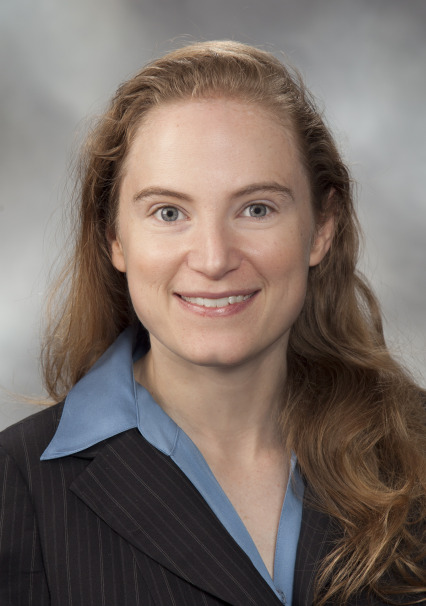HYLAND HUNT
FOUNDING PARTNER
Hyland became a lawyer after years as an intelligence officer in the Air Force, maintaining a focus on problem-solving and rigorous analysis throughout her professional career.
As an appellate advocate, Hyland has practiced before the Supreme Court of the United States and federal and state appellate courts throughout the country. Her practice focuses on administrative law and cases that lie at the intersection of administrative law and other doctrines, which often feature a federal agency on the other side of the “v.” She also regularly appears in First Amendment cases, on behalf of parties and amici curiae seeking to vindicate the right to free speech.
Practice and Background
Hyland has extensive experience in handling complex appeals, including developing strategy and authoring briefs. She has prepared over a hundred appellate briefs at every level, including scores at the merits and certiorari stages in the Supreme Court of the United States. In addition, Hyland has argued appeals before the First, Third, Sixth, Ninth, and D.C. Circuits, and the New Mexico Court of Appeals. Beyond her appellate work, Hyland has an active practice counseling clients on responding to and addressing changing statutes and regulations, and engaging in administrative advocacy, particularly in the health care context.
Immediately after law school, Hyland served as a law clerk for Judge Douglas H. Ginsburg, United States Court of Appeals for the D.C. Circuit, and then for Justice John Paul Stevens, Supreme Court of the United States. Before founding Deutsch Hunt PLLC with Ruthanne, Hyland was an associate and counsel in the Supreme Court and Appellate Practice at Akin Gump Strauss Hauer & Feld LLP, in the firm’s Washington, D.C. and Dallas offices, where she was the recipient of the 2012 Dallas Association of Young Lawyers Pro Bono Service Award.
Hyland received her A.B. magna cum laude in government from Harvard University. After several years on active duty in the Air Force, Hyland studied law at the University of Michigan Law School. She received her J.D. summa cum laude, and was on the editorial board of the Michigan Law Review. Hyland has continued her Air Force service as an officer in the Air Force Reserve Judge Advocate General’s Corps.
Selected Matters
Supreme Court
Advocate Christ Medical Center v. Becerra, No. 23-715 (S. Ct.): As counsel of record, filed a successful petition for certiorari arguing that the Supreme Court should grant review to decide whether "entitled to supplementary security income benefits" within a Medicare payment formula refers to eligibility for benefits or entitlement to payment.
Azar v. Allina Health Servs., 139 S. Ct. 1804 (2019): As co-counsel, filed a brief on behalf of Respondents at the merits stage, arguing that the Medicare Act requires the Department of Health and Human Services to engage in notice-and-comment rulemaking before it can change the standard governing Medicare payment to hospitals for services furnished to low-income patients.
Becerra v. San Carlos Apache Tribe, 144 S. Ct. 1428 (2024): As co-counsel, filed an amicus brief in support of Respondents, arguing that the contract support cost mandate in the Indian Self-Determination and Education Assistance Act is constrained by settled federal contracting principles and rigorous financial controls, and that expenses to administer program income expenditures qualify as contract support costs.
SEC v. Jarkesy, 144 S. Ct. 2117 (2024): Filed an amicus brief on behalf of the Association of Administrative Law Judges in support of Petitioner, arguing that long-established tenure protections for ALJs are constitutional and necessary, and that the constitutionality of removal limits for Social Security Administration ALJs stands on a particularly firm footing.
CFPB v. Community Financial Services Ass’n of Am., 601 U.S. 416 (2024): Filed an amicus brief on behalf of current and former members of Congress in support of Petitioners, arguing that the CFPB’s funding structure is consistent with centuries of congressional appropriations practice and that Congress continues to exercise robust oversight over the Bureau.
Haaland v. Brackeen, 599 U.S. 255 (2023): Filed an amicus brief on behalf of Casey Family Programs and ten other child welfare and adoption organizations, arguing that the Indian Child Welfare Act represents best practices in child welfare.
Mahanoy Area School Dist. v. B.L., 141 S. Ct. 2038 (2021): Filed an amicus brief on behalf of current and former student school board members, arguing that permitting schools to regulate off-campus speech “directed” at the school would chill core political speech and authorize an unprecedented intrusion into students’ personal lives.
Yellen v. Confederated Tribes of the Chehalis Reservation, 141 S. Ct. 2434 (2021): Filed an amicus brief on behalf of the Association of Alaska Housing Authorities in support of Petitioners, arguing that Congress’s express recognition that Alaska Native Corporations (ANCs) are eligible for housing assistance confirms the eligibility of ANCs under the Indian Self-Determination and Education Assistance Act. This brief was cited in the Court’s opinion.
McKesson v. Doe, 141 S. Ct. 48 (2020): Filed an amicus brief in support of certiorari on behalf of First Amendment scholars, arguing that the Supreme Court should review the Fifth Circuit's decision permitting tort claims against a protest organizer based on a protest participant's independent violent act because the decision is a sharp break with the robust protection of political assemblies that has prevailed since the early Republic.
Maine Community Health Options v. United States, 140 S. Ct. 1308 (2020): As co-counsel, filed an amicus brief in support of Petitioners on behalf of America's Health Insurance Plans, arguing that the rule adopted by the Federal Circuit regarding the Affordable Care Act risk corridors program should not be affirmed because it undercuts the government's reliability as a business partner.
Federal Courts of Appeals
Thunder Studios, Inc. v. Kazal, 13 F.4th 736 (9th Cir. 2021): Lead counsel on appeal, successfully arguing that a judgment imposing tort damages for "stalking" based on protest activity must be reversed because, among other reasons, it violates the First Amendment.
Environmental Technology Council v. EPA, No. 19-1215 (D.C. Cir.): As lead counsel, filed petition for review of fee schedule related to manifests for hazardous waste transportation under the Resource Conservation and Recovery Act, resulting in a settlement.
Whitney v. Montefiore Med. Ctr., No. 23-7961 (2d Cir.): Lead counsel on appeal, arguing that the district court erred in granting summary judgment to the employer on a medical resident's claims of disability discrimination and failure to accommodate his disability.
In re Niaspan Antitrust Litigation, 67 F.4th 118 (3d Cir. 2023): Lead counsel on appeal and assisted with briefing the petition for permission to appeal under Rule 23(f), arguing that the district court erred in denying class certification for purported lack of ascertainability.
United States ex rel. Lovell & McKusick v. AthenaHealth, Inc., 56 F.4th 152 (1st Cir. 2022): Lead counsel on appeal, arguing that the False Claims Act mandates the award of reasonable attorneys' fees to relators when the government intervened in their action, the action was settled in a global settlement involving multiple actions, and relators received a share of the proceeds.
Carbon Crest, LLC v. Tencue Productions, LLC, No. 22-15707 (9th Cir.): Lead counsel on appeal, arguing that a business's contractual choice-of-law clause should be enforced, and that the contract is valid under Delaware law governing approval of interested director transactions.
Pfizer, Inc. v. U.S. Department of Health and Human Services, 42 F.4th 67 (2d Cir. 2022): Filed an amicus brief in support of Defendants-Appellees on behalf of America’s Health Insurance Plans, arguing that imposing an extratextual “corrupt intent” element on the Anti-Kickback Statute will harm consumers, and that the Anti-Kickback Statute does not impede drug manufacturers from helping to address the problem of high-cost prescription drugs.
Sanofi-Aventis U.S., LLC v. Mylan, Inc., 44 F.4th 959 (10th Cir. 2022): Filed an amicus brief in support of Defendants-Appellees on behalf of the Pharmaceutical Care Management Association, arguing that pharmacy benefit managers facilitate pro-competitive price competition between drug manufacturers and thereby promote affordable access to prescription drugs.
In re Grupo Televisa Securities Litigation, No. 21-1499 (2d Cir.): Filed an amicus brief on behalf of institutional investors, arguing in support of Petitioners that a district court order disqualifying counsel for failure to disclose transactions made by a third-party pooled investment vehicle would discourage or prevent institutional investors from serving as lead plaintiffs in securities fraud class actions, contrary to congressional intent.
Allina Health Servs. v. Sebelius, 746 F.3d 1102 (D.C. Cir. 2014): Briefed an appeal successfully arguing that a rule must be vacated because it was not the logical outgrowth of the proposed rule.
Oceana, Inc. v. Locke, 670 F.3d 1238 (D.C. Cir. 2011): Argued an appeal that resulted in a reversal of the trial court decision and a victory for an environmental organization in its Administrative Procedure Act challenge to a federal agency rule related to bycatch (fish that are caught but discarded by fishing operations).
State Appellate Courts
Catlett v. Teel, 477 P.3d 50 (Wash. App. 2020): Filed an amicus brief on behalf of the Pennsylvania Center for the First Amendment and Professor Eugene Volokh, arguing in support of Appellant that requesting public records and making them available online is protected speech under the First Amendment and Article 1, Section 5 of the Washington Constitution, and therefore cannot be the basis of a harassment claim under Washington law.
Energy Transfer Partners, LP v. Enterprise Products Partners, LP, No. 17-0862 (Tex.): As lead counsel, filed an amicus brief on behalf of the Chamber of Commerce of the United States of America, the American Fuel & Petrochemical Manufacturers, and the Texas Association of Business, arguing that unfulfilled conditions precedent in a clear and unambiguous contract preclude a partnership from being formed as a matter of law.
Individual Healthcare Specialists, Inc. v. BlueCross BlueShield of Tennessee, Inc., 566 S.W.3d 671 (Tenn. 2019): As lead counsel, drafted amicus brief on behalf of America's Health Insurance Plans, arguing in support of Appellant BlueCross BlueShield of Tennessee that health insurance providers negotiate contractual rights to modify broker and agent commissions because such flexibility is needed to address regulatory change in the health care industry.
Centex/Worthgroup, LLC v. Worthgroup Architects, L.P., 365 P.3d 37 (N.M. App. 2015): Argued a successful appeal in the New Mexico Court of Appeals in a contract dispute raising an issue of first impression under state law related to the interpretation of “flow-down” clauses in construction contracts.
Selected Presentations and Publications
Contributor, D.C. Circuit Review - Reviwed, Notice & Comment Blog, Yale Journal of Regulation
Instructor, CLE, Preparing for and Delivering Oral Argument, Appellate Advocacy Seminar, Practising Law Institute (2022-2024)
Panelist, Supreme Court Review Panel, Federal Circuit Bar Association Bench & Bar Conference (2022)
Moderator, Supreme Court Review Panel, Federal Circuit Bar Association Bench & Bar Conference (2021)
Panelist, Webinar, Inter Partes Review After Oil States: Likely Impact and Next Challenges, ABA Section of Intellectual Property Law (2018)
Instructor, CLE, Framing and Arguing Your Case in the Supreme Court: Tips for Certiorari and Oral Argument, Lawline (2017)
Patricia A. Millett & Hyland Hunt, Crumbling Cornerstones: The Evolution of Preemption Law in the Supreme Court’s 2010 Term, Legal Backgrounder, Washington Legal Foundation (2011)
Douglas J. Ginsburg & Hyland Hunt, The Prosecutor and Post-Conviction Claims of Innocence: DNA and Beyond, 7 Ohio State Journal of Criminal Law 771 (2009).
T: (202) 868-6838
hhunt@deutschhunt.com
Degrees
J.D., University of Michigan School of Law, summa cum laude, 2008
A.B., Harvard University, magna cum laude, 1998
Clerkships
U.S. Supreme Court (Stevens, J., 2009-2010)
Court of Appeals for the D.C. Circuit (Ginsburg, J., 2008-2009)
Bar Memberships:
Admitted to practice in the District of Columbia and Washington, and before the United States Supreme Court, and the United States Courts of Appeals for the District of Columbia, Federal, First, Second, Third, Fourth, Fifth, Sixth, Seventh, Ninth, Tenth, and Eleventh Circuits and for the Armed Forces.

